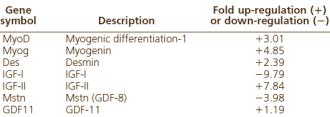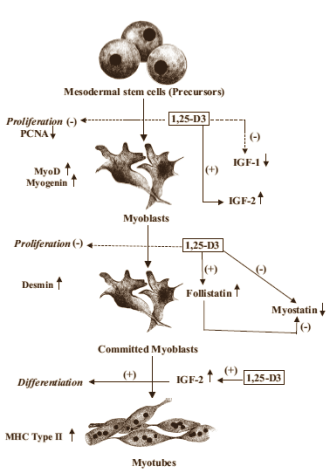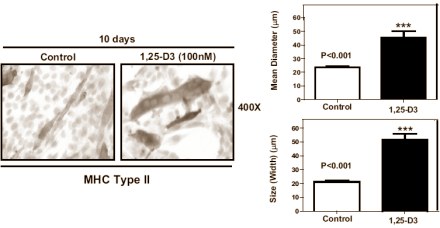|
Definition: "An ergogenic aid is any substance or phenomenon that enhances performance "
|
|
||||||||
30.05.2012 |
|
|
In-vitro study: vitamin D helps muscle cells grow
Everyone knows that vitamin D helps deposit calcium in the bones. And anyone who follows this website reasonably regularly will know that vitamin D also protects against cancer and cardiovascular disease, and boosts testosterone levels. Researchers at the Charles Drew University in Los Angeles have now discovered yet another really interesting effect of vitamin D: in test tubes this vitamin speeds up the development of muscle cells.
Studies show that there is a relationship between muscles and vitamin D. If you give elderly people vitamin D supplements they become stronger. [Osteoporos Int. 2009 Feb;20(2):315-22.] If you expose people to UV radiation – which induces the skin to synthesise vitamin D – then they also become stronger. If you fatten lab animals, then vitamin D supplementation helps them build up more muscle and less fat. The more vitamin D that circulates through a human body, the better the muscle quality.
The researchers wanted to unravel the mechanism responsible for this effect, so they did a series of experiments with C2C12 cells from mice. C2C12 cells are myoblasts. These are stem cells that are present in muscle tissue, and which divide when muscle tissue is damaged.
The researchers exposed these cells to the active form of vitamin D, 1.25-dihydroxyvitamin D, in test tubes. Vitamin D3, a bioavailable form of vitamin D found in animal products such as oily fish, has to undergo two additional transformations in the body before it becomes 1.25-dihydroxyvitamin D, which is also called calcitriol.
Calcitriol speeded up the production of the fast MHC Type II muscle fibres in the experiment. The researchers discovered that vitamin D reduced the production of myostatin in the muscle cells, and increased the production of IGF-2, Myog and MyoD.


In the figure above the researchers summarise the effects of vitamin D that they uncovered.
"This study provides a mechanistic justification for clinical studies to examine the administration of active vitamin D and/or novel VDR activators (to avoid the hypercalcemic side effects) and even the potential role of emerging therapies directed to trigger select vitamin D-regulated muscle pathways in the treatment of adverse muscle conditions", the researchers conclude.
The research was not funded by a supplements manufacturer, but by the American government.
Source:
More:
|
|

